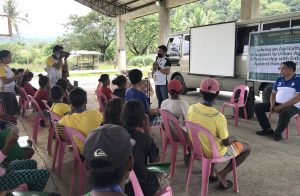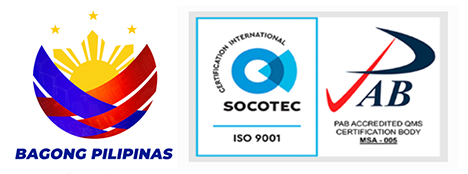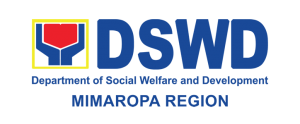
ABRA DE ILOG, Occidental Mindoro – In partnership with the Department of Agriculture’s Agriculture Training Institute (ATI) with the support of Enhanced Partnership Against Hunger and Poverty (EPAHP) and the LGU of Abra de Ilog, the Zero Hunger under the DSWD Sustainable Livelihood Program (SLP) is currently conducting a 4-day capacity-building on Agricultural Technologies in Support to Urban Agriculture Program to the 56 beneficiaries in Brgy. Lumangbayan.
The training aims to capacitate the beneficiaries with appropriate skills, knowledge, and attitude relative to microenterprises’ operation and management and establish an organization that offers livelihood income opportunities, providing a stable income for their families. It is composed of three modules that center on integrated vegetable farming, land preparation, and personal and micro-enterprise development.
Ms. Manilyn M. Tejada, Monitoring and Evaluation Officer of ATI, introduces the training institute, its programs and services to the beneficiaries, while Ms. Dianne Faye Duran, Project Development Assistant II of ATI tackles the concept of vegetable gardening in the community. Mr. Monchito Jalac, a farm supervisor provides an in-depth discussion on the land preparation and demonstration of vegetable gardening. He further discusses the pest and diseases of plants, varieties of veggies, planting process, techniques, concoctions, and organic fertilizers. In addition to these trainings, ATI provided participants with vegetables seeds and farming tools.
Moreover, Mr. Magno Parada, Jr., Project Development Officer II of DSWD SLP presents the SLP to the beneficiaries. He discusses the program processes and their interventions to Zero Hunger, and informs them that 25 beneficiaries are qualified to receive a seed capital fund from SLP amounting to P15,000.00 each.
The Zero Hunger is a convergence program that aims to help mitigate hunger, ensure food and nutrition security, and reduce poverty in urban and rural communities. This capacity-building is under the Zero Hunger Capacity Development for Farmers, People’s Organizations, and Households Urban and Rural Communities Project.
![]()


